Stars are seen as symbol of divine guidance, symbol of excellence, of good luck and also of hope. As such, the collection could be seen from the angle of lost hopes of a country, lost hopes of a youth, blending the personal with the political.
i.
Saheed Sunday began writing in 2018, inspired by a poet friend of his. He was 14 and thought what he wrote was childish but one of the poems got him nominated for the Wole Soyinka International Cultural Exchange Program that same year, the only student nominated from Ogun state. That afforded him a one-on-one encounter with Africa’s Nobel Laureate, Wole Soyinka. That event stamped poetry in his heart.
‘It was what assured me poetry was my call’, he told me on WhatsApp.
When he first joined Hilltop Creative Arts Foundation, the foundation that nurtures teen writers in Nigeria, Saheed said he was totally unnoticeable and insignificant. But Baba Dzukogi, the founder of the Hilltop, is not the person to think anyone insignificant. Saheed is indebted to Baba for not removing him from the group because if he had, Saheed wouldn’t have gotten better and got inspirations from fellow teen authors like Adamu Usman Garko (When Day Breaks, 2019), Zakiyyah Dzukogi (Carved, 2020) and Isaiah Gbenga. Other established writers that inspired him are Romeo Oriogun, Ernest Ogunyemi, Adebayo Agarau and others.
At 16 years of age, he wrote his debut poetry collection Rewrite the Stars. In the poetry category of the Nigeria Prize for Teen Authors, one of the numerous awards organized by Hilltop Foundation, the collection won first runner-up, losing to Zakiyyah Dzukogi’s Winters and Summer (Polasphere Books, 2022). That got him a publishing contract with Hilltop’s publishing outfit, Polasphere Books.
Rewrite the Stars was, among other six books that won The Nigeria Prize for Teen Authors 2020, launched at the finals of Hadiza Ibrahim Aliyu School Festival 2022. HIASFEST is the largest teen arts festival in Africa which targets secondary school students with scholarship. The 3rd edition held between 19th to 22nd of January, 2022.
Saheed who was there has this to say about HIASFEST: ”I was awed by the amount of people who were there —eager to partake in intellectual discussions and spark lights in one another. I saw young students with huge talents, all of them —I wondered if some of them would have been able to hold the talents and passion for arts and science if Hiasfest was an event only in dream and not in reality.
One of the things I loved most about Hiasfest was the night of performance wherein intellectual discussions and healthy arguments were thrown by students and Hilltop members. I was fascinated by the vast exposure of these young students, their discussions and citations were older than they are. I learnt many things, from the event, the officials and the students. Hiasfest is a blessing to art in Nigeria.”

ii.
Rewrite the Stars is a collection whose title makes it open itself to various interpretations considering the numerous things stars symbolize, also bearing on the volume a wide range of thematic concerns. Stars are seen as symbol of divine guidance, symbol of excellence, of good luck and also of hope. As such, the collection could be seen from the angle of lost hopes of a country, lost hopes of a youth, blending the personal with the political.
In the title poem which opens the collection, the poet laments the starlessness of the sky and states his determination to persuade ‘those stars out of the bars’ (pg., 1).
He draws inspiration from birds and hopes to fly like them (So Say the Birds, pg 34)
Saheed is very technical in his crafting of these poems, from the patterns and rhythm (all the poems have rhymes) to the arrangement of ideas and the symbols that represent them. We can see this in the symbols where the persona gets inspiration from birds to fly to the bleak horizon and rewrite the stars. These images of birds, horizon and stars recurs in the collection as they contribute to the overall meaning of the anthology.
Other symbols permeate the poetic landscape like the lark which appears in a lot of the poems, a songbird that could be the persona himself or just a songbird he looks up to.
My voice has broken
And there are no songs in me then
My lark has been given a second nature
As it seem a rather queer critter, a strange creature…
( Lonely Days, pg 16)
In literature, seasons generally symbolize age with spring as representative of youth. In the Scavenger of Sorrow, the poet paints the image of the youth (springs) lifting the lamp of hope higher as they chase sorrow away which says a lot about the struggles of children growing in a broken country.
In poems like Deceit and A Bitter Pill he presents a stinging critism on bad leadership. In other poems like Hurtful Recollections and Alone he takes on personal experiences of loneliness and memories.
iii.
Saheed’s poetry clearly espouses the philosophy and ideology of WSICE and Hilltop alike. This is the philosophy that sees the Nigerian child as the one to marshall all our resources in developing them as leaders of tomorrow.
BM Dzukogi is a firm believer in the potentials of the Nigerian youths. He told reporters at the festival that the most deserving entity in Nigeria are the children since it is the community that needs to fix the society.
Saheed Sunday and many other teen authors are renewing our hope in their capacity to pitch in their best for the betterment of the society. The poet himself is indeed no less a symbol of hope and no less a star.
Author’s Bio:
Mujahid Ameen Lilo writes in English and Hausa. He majors in English Language at Ahmadu Bello University, Zaria. His works have appeared in The Lagos Review, The Nigeria Review, Ebedi Review, Kalahari Review, African Writer, Daily Trust, Praxis, Konya Shamsrumi and others. He won The Wole Soyinka Essay Competition 2019 and was the first runner-up of the Nigeria Prize for Teen Authors 2020. A 2021 recipient of the HIASFEST Star Prize for the most progressive teen author in Nigeria, Lilo was a guest at Katsina Books and Arts Festival 2021, Lagos Book and Arts Festival 2020 and others. He is working on his first novel.
- CALL FOR SUBMISSION: Dear Yusef: Essays, Letters, and Poems For and About One Mr. Komunyakaa - May 25, 2022
- #SubmitNow: Awaiting Revolution Poetry/Essay Anthology - May 21, 2022
- The Straight Path | Adamu Yahuza Abdullah - May 20, 2022






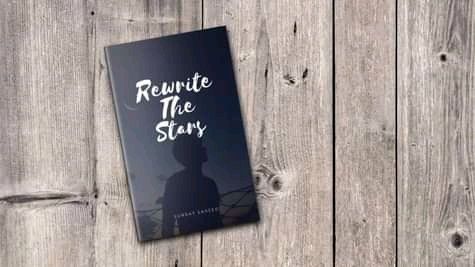
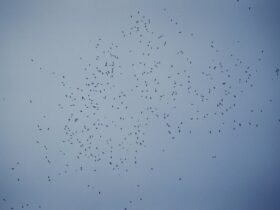
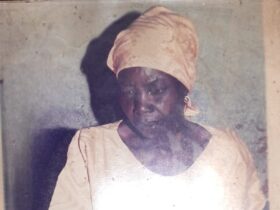
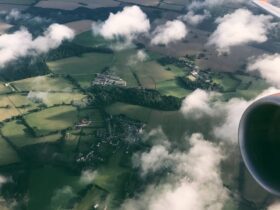
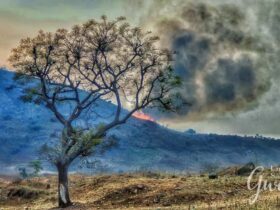
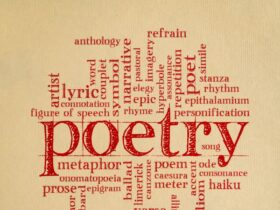

Leave a Reply